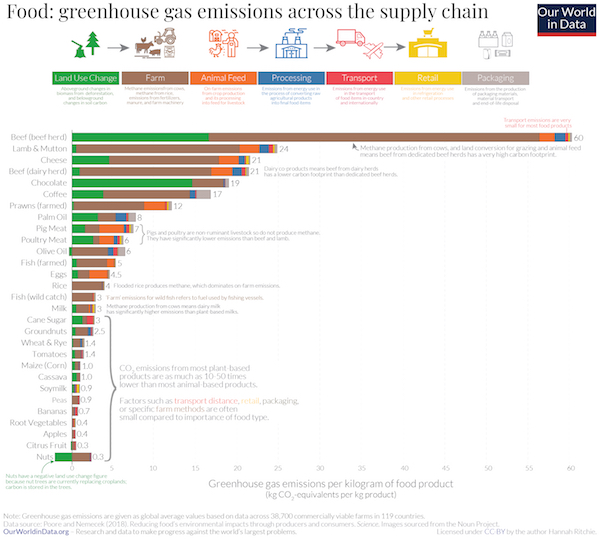"I was wondering: Are you planning a future column focusing on air travel?
I first learned about global warming in about 1990, when I was in my early twenties. I was already a cyclist, having ridden to school since the age of 7, but I made a commitment at that time to be a bicycle commuter. At first I didn't ride every day, more like 2 or 3 days a week. But over the years I started biking more and more, and now I drive to work only about 4 times a year. Reducing my personal production of greenhouse gases (GHGs) has always been a large motivating factor for me to commute by bike, and there are lots of other benefits as well, such as exercise and never getting stuck in traffic. It's not always easy, but the benefits outweigh the costs.
Back in the 1990s, I knew that cars emitted a lot of carbon dioxide, but I didn't learn about the GHG contribution of air travel until much later, probably around 2008. I learned that in a single airplane trip I could obliterate all my GHG savings from a year of bike commuting. I'd do better to drive my car and never fly than to bike every day and fly a couple of times a year.
I cut back on flying but not completely until I started dating my boyfriend who had already cut out flying. (He's also a transportation bicyclist.) It has been more than two years since I last flew and I'm saving any future flights for true emergencies. If I can avoid it, I'm not going to fly."
She goes on to wonder why as a society we disapprove of littering yet approve of travel, though the latter pollutes the skies for centuries. "Try crumpling up a piece of paper and throwing it on the ground within sight of other people. They will freak out about the litter. But say to the same people, 'I just took a trip to Paris,' and they will say, 'Oh how wonderful!'"
Well, Paris is more interesting, right? And the food…. I come from a family of fliers, starting from when we were kids. My dad traveled overseas a lot for work, taking us with him on occasion, and the “travel bug” proved catching. My sister grew to appreciate the multicultural experiences so much that she became a travel agent. My brother’s family loves exploring interesting places. And my parents continue to enjoy beautiful trips to far flung places. The decision to travel is a very personal one, and there are many excellent reasons to travel. I am not a particularly good traveler, but I do get in planes and will surely increase my travel if my kid goes to college and later establishes herself far away. So I see no point in being dogmatic on this topic.
But there is a lot of room for flexibility, so what I will do is provide some information about flying that you may find helpful. This Sunday I will talk about the relative impact of flying and how I’ve thought about it. The following Sunday I will have some practical tips for choosing and offsetting flights, with some more detail about the flight emissions calculators. Then the week after I will talk some about how aviation regulations and technology are evolving.
Americans fly a lot (1), and those of us on the mid-Peninsula fly even more (2). So it makes sense to pay attention to its impact on our climate. Buckle up!
Notes and References
1. As shown in the figure below, the average U.S. resident uses about six times the jet fuel of the global average.

Per capita jet fuel use in liters for 2016, adjusted to discount tourists. Source: The International Council on Clean Transportation
2. I don’t have a great reference for this, but miles flown is highly correlated with wealth, and we are (on average) wealthy. A carbon footprint calculator from UC Berkeley estimates miles flown per zip code simply by looking at wealth. They estimate the flight miles for an average single-person household in 94301 (Palo Alto) at 5,700 miles per year, compared to 2,500 for an average single-person household in the general United States. Their estimate for a single-person household in Atherton is twice that, at 11,300 miles.
Current Climate Data (January 2020)
January 2020 was the warmest January on record for the globe
Global impacts, US impacts, CO2 metric, Climate dashboard (updated annually)
Comment Guidelines
I hope that your contributions will be an important part of this blog. To keep the discussion productive, please adhere to these guidelines, or your comment may be moderated:
- Avoid disrespectful, disparaging, snide, angry, or ad hominem comments.
- Stay fact-based and refer to reputable sources.
- Stay on topic.
- In general, maintain this as a welcoming space for all readers.




